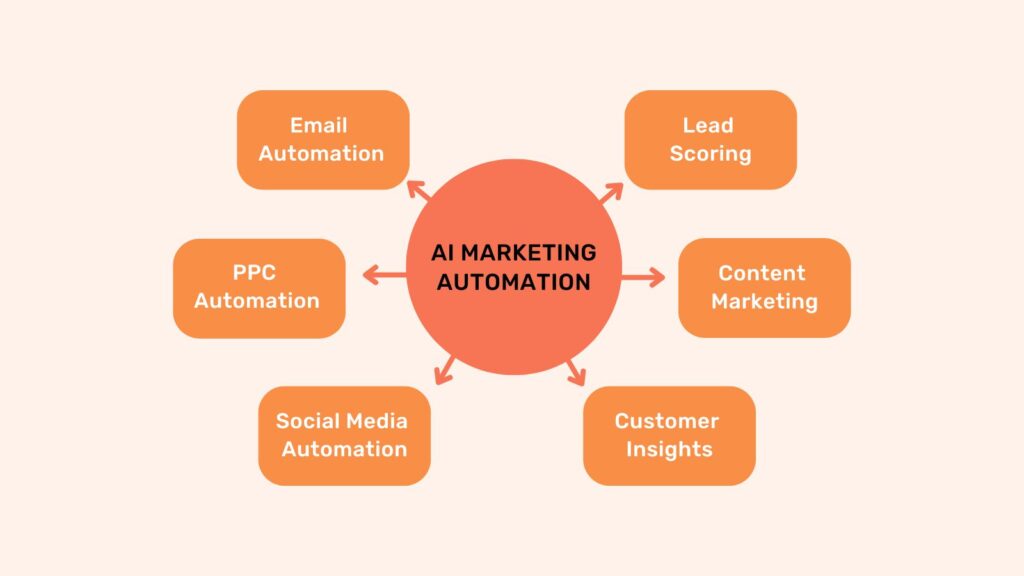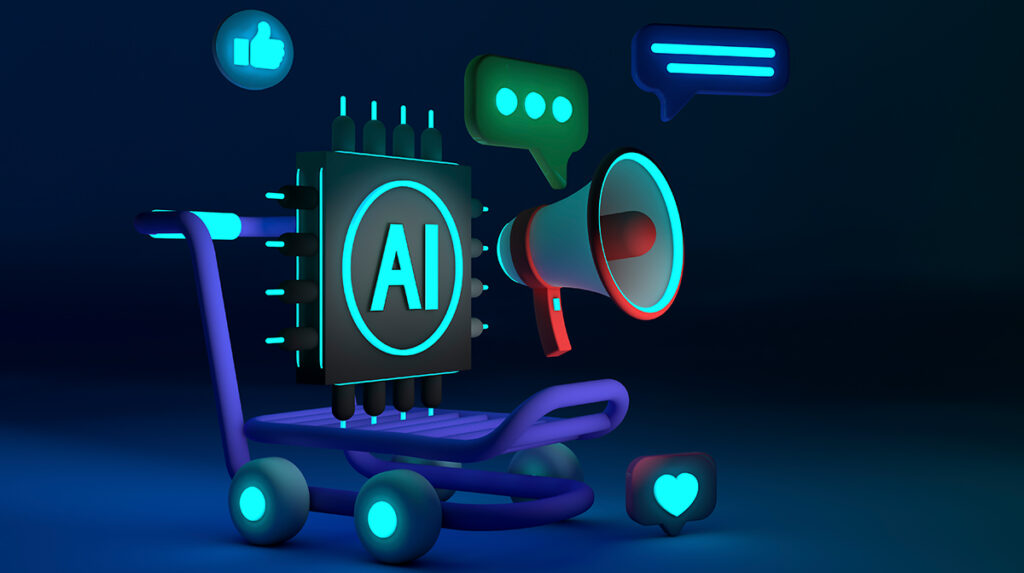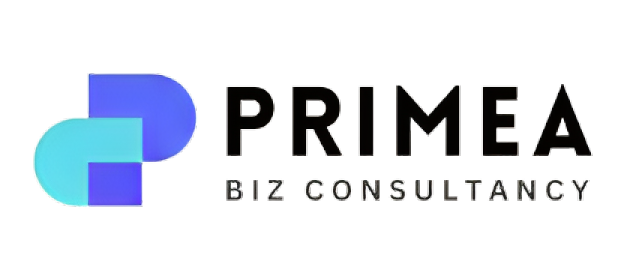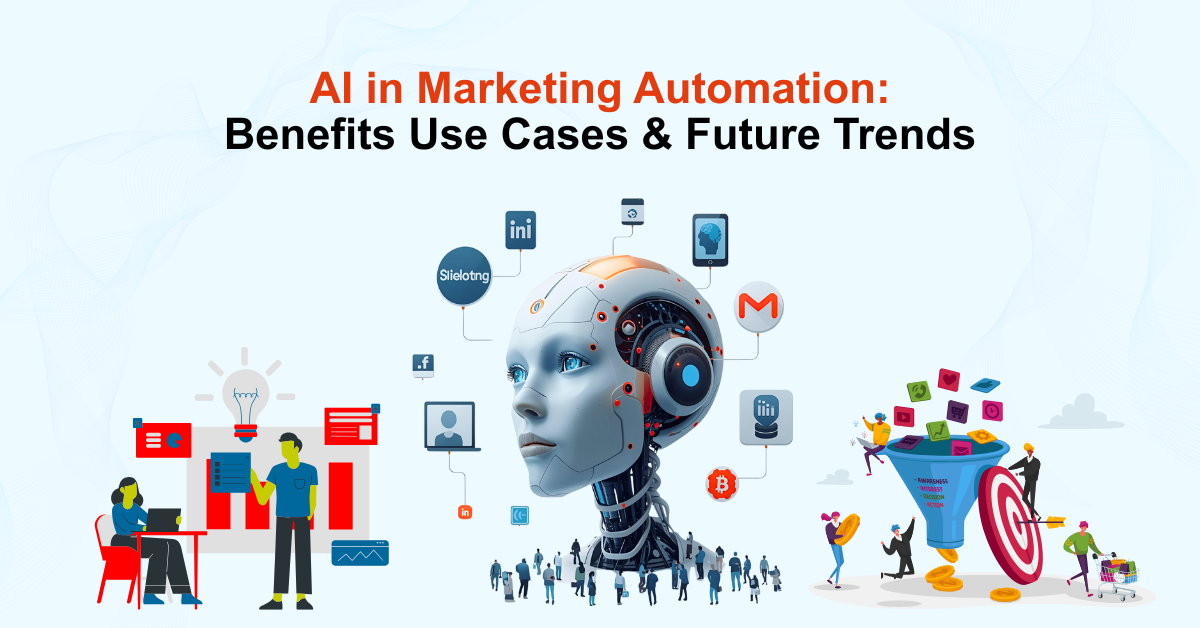Marketing Automation in 2025: Streamlining Campaigns with AI
As businesses continue to adapt to an increasingly digital landscape, marketing automation has become a necessity. By 2025, it will be more than just automating emails or social media posts. Marketing automation, powered by AI tools, is transforming how businesses engage with their audiences, streamline processes, and deliver personalized, effective marketing campaigns.
In this blog, we’ll explore how AI is enhancing marketing automation, the tools redefining the industry, and how businesses can leverage these technologies to boost their marketing efforts.
The Rise of Marketing Automation in 2025
Marketing automation has been around for years, but its evolution is accelerating thanks to AI. In 2025, it’s no longer just about scheduling posts or sending bulk emails. AI-powered marketing automation tools allow businesses to automate tasks while leveraging advanced capabilities like predictive analytics and real-time optimization.
This shift is allowing marketers to focus on higher-value activities while AI handles repetitive tasks. By automating key processes, businesses are saving time, increasing efficiency, and delivering more relevant marketing at scale.

How AI Enhances Marketing Automation
AI has become the backbone of modern marketing automation. Here’s how AI tools are taking marketing to the next level in 2025:
1. Predictive Analytics and Smarter Customer Segmentation
AI-driven predictive analytics tools can analyze past customer behavior and predict future trends. By understanding these patterns, businesses can create more targeted marketing campaigns and reach the right audience at the right time.
Customer segmentation is also enhanced with AI. It can categorize customers based on their behavior, preferences, and demographics, allowing businesses to send highly personalized messages to each segment.
2. Personalization at Scale
Personalization is no longer just a luxury—it’s expected. AI tools make it possible to personalize marketing efforts on a massive scale. By analyzing customer data, AI can deliver tailored recommendations, offers, and content.
For example, if a customer recently browsed running shoes on an online retailer’s site, AI might trigger an email with a personalized offer for a related product, like fitness gear. This type of one-to-one marketing enhances customer experiences and increases conversion rates.
3. Natural Language Processing (NLP) for Engaging Customer Conversations
Natural Language Processing (NLP) allows AI to understand and respond to human language. By incorporating NLP into marketing automation, businesses can use chatbots to engage customers in real-time. These AI-driven assistants can answer questions, guide users through purchasing processes, and resolve issues instantly.
NLP tools also enable businesses to automate customer support interactions and provide 24/7 assistance without requiring human intervention, which boosts efficiency and customer satisfaction.
Content Automation: Creating and Curating at Scale
Content is the foundation of most marketing strategies, but producing high-quality content at scale is time-consuming. AI tools can now generate blog posts, social media content, and even video scripts based on specific keywords and topics. These tools can ensure that content is optimized for SEO, allowing businesses to maintain a constant content flow.
AI can also help marketers identify trending topics and curate content that resonates with their target audience, improving engagement rates and driving more traffic.

Marketing Automation in 2025: Real-Time Campaign Optimization
One of the most significant advantages of AI in marketing automation is its ability to optimize campaigns in real time. AI tools can monitor the performance of campaigns and automatically adjust parameters such as ad spend, targeting, or content delivery.
Programmatic advertising platforms, powered by AI, can make decisions in milliseconds, ensuring that ads are always optimized for the best possible ROI. This automation minimizes human intervention and maximizes efficiency.
How AI Transforms Email Marketing Automation
Email marketing remains a core component of many marketing strategies. In 2025, AI tools are taking email automation to new heights. These tools can automatically segment email lists, personalize content, and predict the best times to send emails.
AI-driven email platforms analyze past campaign performance and use these insights to improve future campaigns. Whether it’s optimizing subject lines or determining the ideal send time, AI is enhancing email marketing’s effectiveness and increasing engagement.
AI and Social Media Marketing
Social media marketing will be profoundly influenced by AI by 2025. AI tools can automate post-scheduling, analyze engagement, and help marketers discover influencers relevant to their brands. They can also assist in optimizing paid social media campaigns by adjusting targeting and content dynamically based on real-time performance data.
Moreover, AI-driven social listening tools can monitor brand mentions, track sentiment, and identify emerging trends across social platforms. These insights allow businesses to adapt quickly to customer feedback and stay ahead of their competition.
The Benefits of AI in Marketing Automation
There are numerous benefits to incorporating AI into marketing automation:
- Increased Efficiency: AI can handle repetitive tasks such as data analysis, content creation, and campaign optimization, saving valuable time for marketers.
- Cost Savings: Automating marketing processes reduces labor costs and allows teams to focus on strategy rather than day-to-day operations.
- Personalized Customer Experiences: AI enables businesses to send tailored messages to the right people at the right time, improving engagement and conversion rates.
- Improved Campaign ROI: Real-time optimization ensures that marketing campaigns are continuously refined, maximizing the return on investment.
- Data-Driven Insights: AI allows marketers to make informed decisions based on real-time data, helping them stay competitive in an ever-evolving marketplace.

How to Implement AI Marketing Automation in 2025
To successfully integrate AI marketing automation into your strategy, follow these steps:
- Assess Your Current Marketing Needs: Identify areas where AI could automate repetitive tasks or provide valuable insights, such as customer segmentation or predictive analytics.
- Choose the Right AI Tools: There are various AI-driven platforms available, each offering unique features. Choose the ones that align with your business objectives.
- Integrate AI with Existing Systems: Ensure that your AI tools can seamlessly integrate with your current CRM, email, and analytics platforms.
- Prioritize Data Quality: AI works best with clean, accurate, and up-to-date data. Ensure your data is in good shape before applying AI tools.
- Monitor and Optimize: Continuously test and tweak your AI tools to ensure optimal performance. Use data insights to refine your strategies and improve results.
Conclusion
By 2025, AI-driven marketing automation will have fundamentally transformed how businesses engage with their customers. From personalized content to real-time campaign optimization, AI tools will allow marketers to deliver more effective campaigns and improve customer experiences at scale. Businesses that embrace this technology will not only enhance efficiency but also gain a competitive edge in the digital marketplace.



